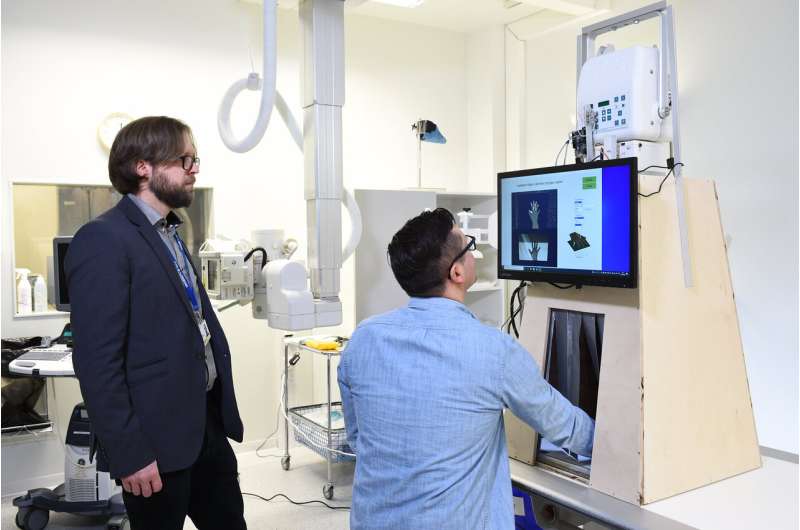
An accident, such as falling on a ski slope, usually requires an X-ray examination of the injured limb and a trip to the nearest hospital or emergency clinic. In the near future, imaging services can be brought closer to the patient. Researchers in Oulu are currently developing a compact X-ray imaging device that even the patient could use if necessary. The X-ray device is easy to use and can be placed virtually anywhere, so it can be used not only to improve the accessibility of health services, but also to achieve significant cost savings in health care and specialized medical care.
The technical issues regarding the small X-ray device have already been solved, and the prototype of the device is under construction at the University of Oulu Research Unit of Medical Imaging, Physics and Technology. The actual innovation of the device is automated patient control that instructs the patient to position the injured limb in the correct position for imaging.
At this stage of development, the imaging voltage and guidance modeling of the self-guiding X-ray have been scaled for X-raying bones in the ankle and palm.
The X-ray device has built-in radiation protection, which has enabled compressing its size to approximately 50x50x130 cm. Thanks to its compact size, the device can in principle be stored and used anywhere it might be necessary, such as a ski resort, municipal center or emergency clinic. The current large X-ray units require lead protection for the entire imaging room, which is expensive and takes up space.
The total cost of the small X-ray device is significantly lower than the X-ray equipment currently used in facilities such as municipal health centers. The device can be used to lighten the workload of trained X-ray personnel in health centers and university hospitals and to allocate these resources for more demanding imaging tasks. Focusing the workload in this way will result in cost savings.
Source: Read Full Article



